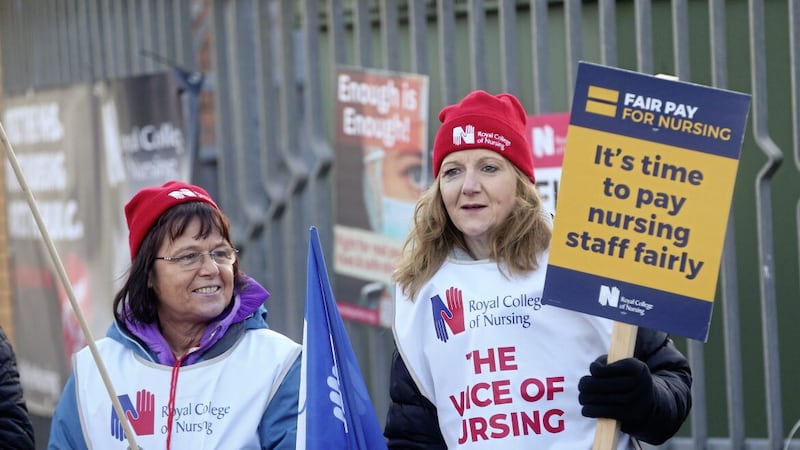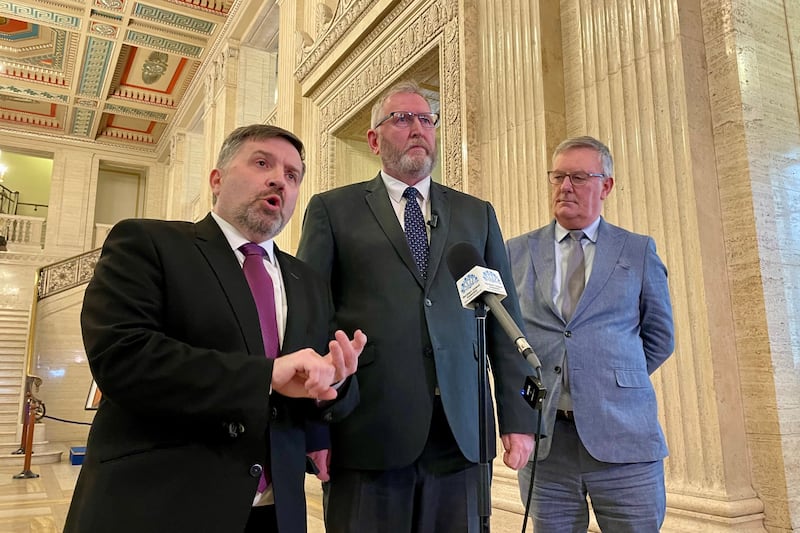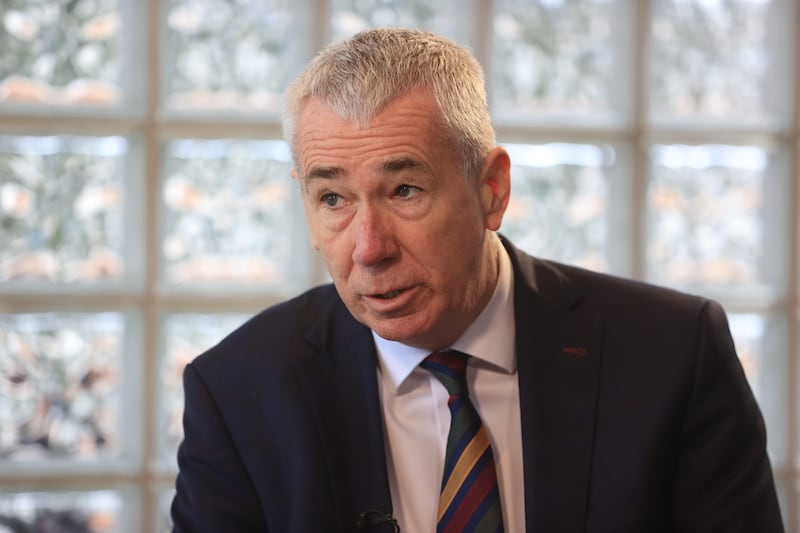A decision by Rishi Sunak to accept the recommendations of pay review bodies and offer public sector workers in England wage increases of up to 7 per cent aims to go some way towards ending months of disruptive industrial action.
While still below the rate of inflation, the government hopes some unions will advise members to accept the offer, albeit with concerns that pay rises could be funded by service cuts.
In Northern Ireland, however, the grim reality is that many workers are facing the prospect of no pay rise this year alongside devastating cuts to frontline services.
The head of the regional civil service, Jayne Brady, told Secretary of State Chris Heaton-Harris this week that departments had "reached the limit" of what they can do to manage budget pressures and are face the prospect of another significant overspend.
The trade union umbrella body NIC/Ictu has warned of a "carnival of industrial unrest" if wages fall behind those in Britain due to the Stormont budget crisis.
Health service staff, teachers and some civil servants have already been involved in industrial action in recent months.
A major nursing union indicated yesterday that it is likely strike again if there is no pay offer or political progress by the autumn.
With the Department of Health saying there is no money to cover a similar rise to Britain, the Royal College of Nursing has reasonably complained of being treated "like second-class citizens".
There is real risk of more nurses leaving the service for better-paid jobs across the border or other parts or the UK, further exacerbating chronic staff shortages.
Meanwhile, doctors, teachers and police are also expressing alarm about the consequences of a potential break in pay parity with Britain.
While Stormont politicians must share blame for the situation we find ourselves in, there is undoubtedly political pressure being exerted by the British government by imposing impossible budget constraints on those running departments in the absence of an executive.
The casualties of this high-stakes game of chicken are of course ordinary workers and their families struggling to pay huge hikes in mortgage and living costs and public services facing savage funding cuts.
If the DUP is intent on continuing its bull-headed boycott of Stormont into the autumn and beyond, it risks the damage caused to public services and public confidence in our institutions becoming irreparable.







